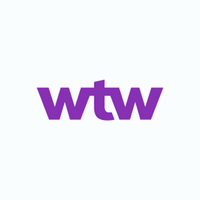How to implement a flexible benefits package that is inclusive of all employees

It has become increasingly important to recognise employees as individuals with multi-layered and evolving interests, disparate values and unique circumstances. What is important for one may have little value for another.
Personalisation embodies the zeitgeist of our time – professionally and personally. Just as people expect personalised shopping and travel experiences that are tailored to their interests, lifestyle, life-stage and preferences, they also expect the same level of customisation and flexibility from their benefits package.
In short, the more choice that you give employees, the more they will feel understood and valued. And the easier you make the process of choosing benefits, the more inclusive it will be.
The rich tapestry of business
Our Global Benefits Attitudes Survey found that almost half of workers (44%) said their benefits package was more important than ever before. Despite the importance placed on benefits by workers, only half of those surveyed said their package meets their needs. Somewhat unsurprisingly, satisfaction increases as salaries rise and packages become more comprehensive.
So how can businesses provide for this rich melange of people and preferences?
First and foremost, consultation is key. If companies are to engage employees, and create a benefits package that truly reflects their needs, they need to be seeking feedback and employee input.
This is where some companies can fall short. Despite the significant investment poured into benefits offerings, more than two-thirds (67%) of employees say they had never been consulted about their rewards and benefits preferences, according to our Health and Benefits Barometer.
A failure to tailor benefits to meet the needs of the unique employee population means companies are at risk of neglecting certain demographics or subsets and also risk a negative impact on return on investment.
Offering more flexible packages that combine both standard and less mainstream benefits can help employers differentiate themselves from the competition. In many cases, the professional and personal commitments of older employees will differ notably from those of their younger cohorts. Where one may value the peace of mind that life insurance can bring, the other may appreciate extended leave to volunteer and travel.
Equally, in some cases their preferences may not differ at all, despite the age gap. Companies shouldn’t make the assumption that their workforce will conform to societal stereotypes – as they may find that there is more uniting their Gen Z and baby boomers workers than divides them when it comes to health benefits.
In fact our Barometer research found that all generations chose the most traditional insurance benefits, such as health, income protection, life and critical illness cover, when it came to selecting their most valued benefits.
Non-traditional, wellbeing-related benefits, such as health screenings and counselling, were more popular among younger workers, but there was also an appetite for these types of benefits amongst older workers.
Making assumptions about the employee population or a reluctance to review or reinvigorate benefits strategies will invariably lead to disengagement – by simply asking, employers can get more from their investments and help their employees feel more included and valued.
More choice, more satisfaction
Our Benefits Trends Survey 2019 found that more than half (55%) of businesses said they intend to create a shopping inspired, mix and match experience for members when they sign up for benefits.
In response to this, we are now seeing an emergence of out-of-the-box systems, some of which ask employees a series of questions and present the benefits that resonate with their responses. In a matter of minutes an employee can determine if one product or mix of benefits provisions is right for them.
Such modern flex provisions are designed and tailored to align the disparate business needs with varying employee wants. They offer a far more intuitive, engaging and flexible employer-employee user experience.
We have also seen growth in ‘anytime benefits’ with a focus on personalisation and freedom of choice. If an employee wants to opt for a gym membership mid-month, for example, they can do so, without having to wait for a restrictive annual enrolment window.
The number of affinity benefits and lifestyle products offered via flex arrangements is increasing year-on-year to reflect the discerning tastes and varied requirements of employees.
Just two years ago, the average number was around 12 standard offerings, such as dental, childcare and gym memberships. Today provisions are often in excess of 20. Unconventional perks can include paid time off to travel or study, contributions to employee volunteer efforts, complete flexibility on holiday and work hours and student-loan debt reimbursements.
Benefits make a world of difference
Benefits appreciation can play an important role in recruitment, job satisfaction and retention.
With so much influencing potential, it would be remiss of companies to overlook the positive impact of a truly flexible and all-inclusive benefits package.
By listening to the views of workers and tailoring the offering to what really matters to them, companies can retire the benefits that are under-valued and under-used and offer more relevant choice and increased flexibility.
A truly inclusive benefits package is the ideal platform to demonstrate that a company listens and responds. Moreover, valued employees deserve valuable benefits – and more often than not, a valued workforce will prove a productive one.
The author is Mark Ramsook, senior director at Willis Towers Watson.
This article is provided by Willis Towers Watson.
Supplied by REBA Associate Member, WTW
WTW is a leading global advisory, broking and solutions company.







